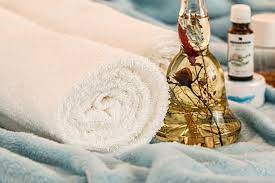5 Advantages of Aromatherapy for Winter Mental Illness
Winter is here, which means fewer days, lower temps, and less time spent in the sun. Unfortunately, there may be a higher chance of mental health conditions including anxiety, sadness, and seasonal affective disorder (SAD) as a result of these shifts. Nonetheless, aromatherapy is a natural remedy that may support general well-being and assist in reducing discomfort throughout the winter.

Aromatherapy employs plant-derived essential oils to provide a variety of medicinal advantages, according to Ridhima Kansal, Director of Rosemoore. This essay will examine the several ways that aromatherapy might help those who are experiencing mental illness in the winter.
Improving Mood: Positive effects on our emotions and moods have long been associated with aromatherapy. Certain essential oils may boost vitality, raise the soul, and help fight depressive and melancholy moods. Ylang-ylang, bergamot, lavender, and citrus oils like orange and grapefruit are popular oils for boosting mood in the winter. Feel-good neurotransmitters like dopamine and serotonin are released in response to certain aromas, which enhance feelings of pleasure and wellbeing.
Reduction of Stress: The stresses of winter include the duties of daily living, the pressures of the holidays, and an increase in solitude. Aromatherapy may be a useful technique for relieving tension and promoting calmness. relaxing oils with relaxing qualities, such frankincense, lavender, chamomile, and clary sage, help ease stress and improve sleep. These oils may be used to diffuse, add to bath soaks or massage oils, or create a calm and serene environment that is beneficial for stress management.
Energizing Effects: The winter months may make individuals feel drained and unmotivated. Winter tiredness may be fought off with the energizing and renewing benefits of aromatherapy. The stimulating qualities of essential oils, such those found in peppermint, eucalyptus, rosemary, and lemon, may increase attention, increase energy, and improve mental clarity. To arouse the senses and elevate mood and energy, these fragrances may be applied physically or dispersed.
Immune System Support: The immune system, which often suffers during the winter, is something that aromatherapy is quite important in bolstering. Strong antibacterial characteristics of essential oils, such those of tea tree, eucalyptus, and lavender, may aid in the prevention of disease and improve general wellbeing. These oils may be diffused to help clean the air and stop the spread of airborne germs, which lowers the risk of respiratory illnesses and strengthens the immune system.
Relaxation and Better Sleep: Wintertime sleep disturbances may aggravate insomnia and restless nights. Aromatherapy is a safe, all-natural way to encourage calm and enhance the quality of your sleep. Oils with sedative qualities, such as lavender, chamomile, clary sage, and sandalwood, may help promote better sleep, ease anxiety, and relax the mind. You may establish a nightly routine that promotes relaxation and better sleep by including these smells via diffusers, pillow sprays, or bath rituals.
Essential oils have a lot to offer those suffering with winter mental illness, whether it is via mood enhancement, stress reduction, energy enhancement, immune system support, or improved sleep. It’s important to keep in mind that aromatherapy is a supplemental treatment for mental health issues and should be used in conjunction with other successful therapies or treatments. As always, seeking medical advice is advised to guarantee that aromatherapy is used safely and appropriately for anyone with known medical issues or sensitivities.







